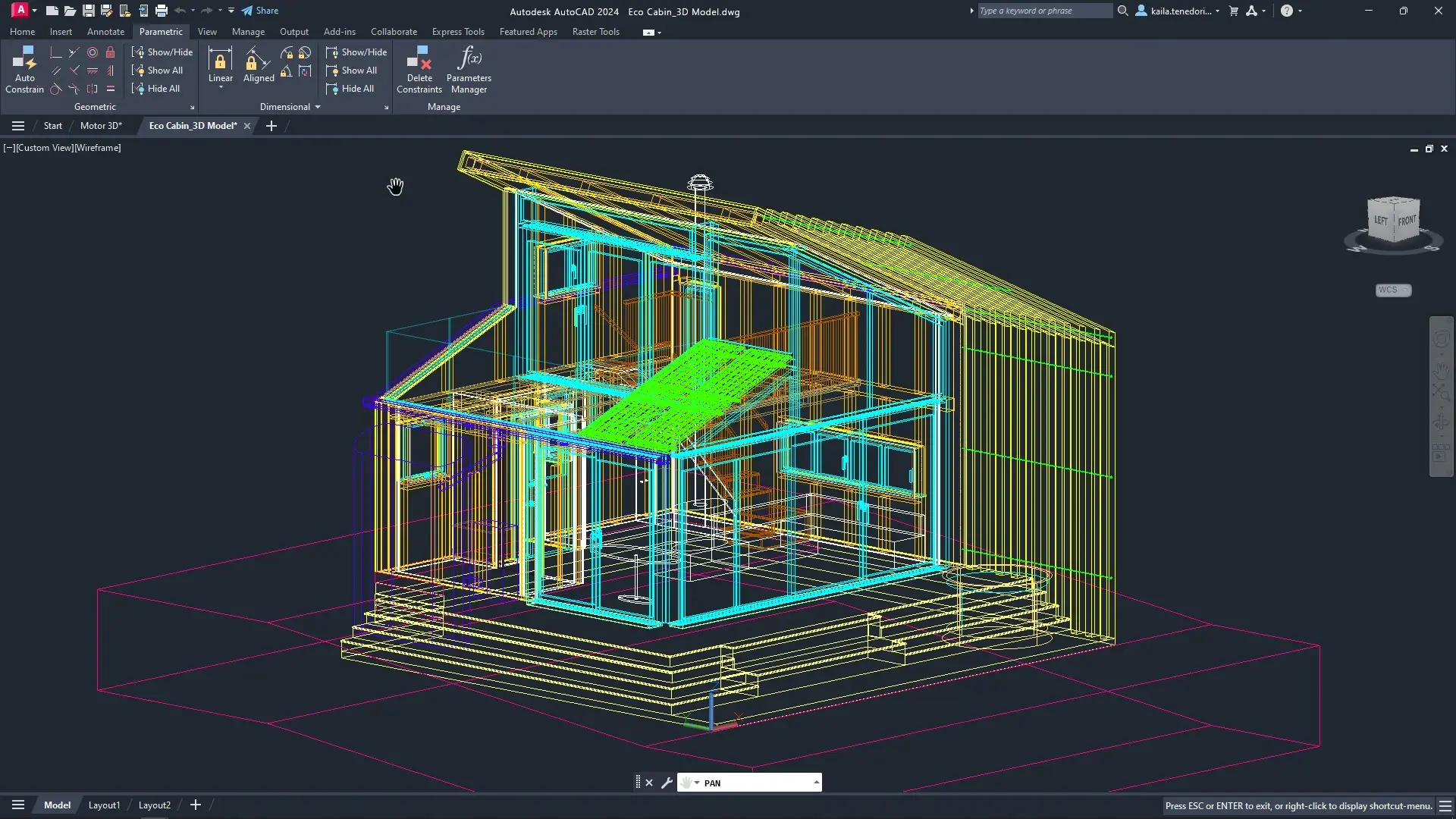5 Best Courses After Diploma in Civil Engineering in 2026

Table of Contents
Have you ever been fascinated with the majestic skyscrapers that line the skylines of our cities or the elaborate system of bridges and highways that connects our neighbourhoods so well? The unsung heroes of our everyday life, civil engineers are responsible for these miracles of contemporary engineering.
Buildings and roads are only one aspect of civil engineering; another is reshaping our society and guaranteeing its long-term viability. But, today's civil engineering demands more than site experience; employers now look for professionals who understand modern tools, smart construction techniques, sustainable design, and digital workflows.
To build a stable career and qualify for higher-paying roles, diploma holders must upskill through industry-recognized programs such as BIM, construction management, structural design, and environmental engineering. This guide explains what civil engineers do, explores career opportunities, and lists the top 5 best courses after diploma in civil engineering that can boost your job prospects, increase earning potential, and open doors to global AEC roles.
What Do Civil Engineers Do?
Civil engineering might be compared to our daily life's unsung heroes. It all comes down to planning, constructing, and maintaining the infrastructure that keeps our cities growing day by day, such as buildings, water systems, and bridges. Consider the people who make sure you can travel by car, bicycle, or foot from point A to point B without any problems. However, it serves more purposes than merely getting us about; it also keeps us cosy and safe.
Engineers work on projects related to public health, such as maintaining the cleanliness of our drinking water and the functionality of our sewage systems. They keep sustainability and the environment in mind while maintaining the seamless operation of our metropolitan areas. Their duties and responsibilities vary based on their job role and project, but common tasks include:
- They design and plan considering factors such as safety and environmental impact.
- They manage projects, budgeting, scheduling, and resource allocation.
- They handle construction activities to ensure adherence to design specifications and safety regulations.
- Before starting a project, they conduct site investigations to assess geological and environmental conditions.
- They make estimations of project costs, prepare budgets, and monitor expenses to stay within budget.
- They make sure the project follows building codes, zoning laws, and environmental regulations.
- They always maintain detailed documentation and reports of the project lifecycle for communication with stakeholders.
- They also participate in professional development activities to stay up to date about the latest developments in the world of their field.
Workplace of Civil Engineers
Civil engineers work in various settings, including offices, construction sites, and field locations. They use specialised software for designing, analysing, and managing projects, creating and reviewing engineering drawings, developing project plans, and collaborating with architects, engineers, and stakeholders. They also participate in meetings to discuss project progress and address challenges.
Construction sites are a common workplace for them to oversee the execution of plans, ensuring work meets design specifications and safety standards, and addressing technical issues. They work with construction teams, contractors, and inspectors to ensure projects progress as planned. They often visit the field locations for site investigations, assessments, inspections, monitoring, and quality control during construction or maintenance. They travel for site visits, client meetings, or collaboration with professionals from different organisations, allowing them to understand the project context and coordinate with stakeholders.
Read more: 5 Best Civil Engineering Design Courses in India (2026)
Career Opportunities After Diploma In Civil Engineering
Here's a more detailed table outlining various career opportunities after a diploma in civil engineering, along with their specific roles and average salaries:
|
Career Opportunity |
Role Description |
Salary Range (INR) |
|
Construction Technician |
They ensure construction projects comply with building codes, regulations, and specifications. They inspect construction sites, monitor progress, and ensure quality control. They also make sure about the safety standards by helping in resolving any issues that arise during construction. |
₹3,00,000 - ₹4,50,000 p.a. |
|
CAD Technician |
CAD technicians create detailed and readable drawings and plans for working on-site in construction projects using computer-aided design (CAD). They work with engineers and architects for the design concepts converting into technical drawings, with proper accuracy and meeting precise project requirements. They also help in revising and updating drawings as needed throughout the project lifecycle. |
₹2,50,000 - ₹4,00,000 p.a. |
|
Site Engineers |
Site engineers work on the projects on-site from start to finish. They manage day-to-day tasks, coordinate with contractors and subcontractors, and ensure that work progresses according to plans and schedules. Site engineers also handle quality control, monitor safety standards, and resolve any technical issues or challenges that arise during construction. |
₹3,50,000 - ₹5,00,000 p.a. |
|
Construction Managers |
Construction managers coordinate the projects from planning to completion. They manage the project budgets, schedules, and resources, ensuring that the work is done with safety, efficiency, and according to quality standards. They also coordinate with clients, architects, engineers, and contractors to discuss project requirements and resolve issues that mostly arise during construction. |
₹5,00,000 - ₹10,00,000+ p.a. |
|
Project Coordinators |
Project coordinators support project managers by organising schedules, tracking progress, and communicating with stakeholders. They ensure that projects run smoothly and with proper efficiency by coordinating activities, resolving issues, and maintaining effective communication among team members and stakeholders. They also help in making a budget, allocating the resources, and documentation to make sure the project objectives get completed on time within the budget. |
₹3,00,000 - ₹4,50,000 p.a. |
Top 5 Courses for Better Career Opportunities
After pursuing a diploma or civil engineering degree, you can enhance your career prospects by enrolling in specialised courses to acquire higher education and specific skills and increase job opportunities. Some popular civil engineering programs include:
1. BIM Professional Course for Civil Engineers by Novatr
Mode: Online
Duration: Eight months
Build a future-ready career in construction with Novatr’s BIM Professional Course for Civil Engineers, a hands-on, industry-aligned program designed to help you master Building Information Modeling (BIM) from design to execution. Learn how top global firms use BIM to plan, coordinate, and deliver smarter, more efficient projects. while gaining the technical confidence to work on large-scale infrastructure and building developments.
Here’s what you’ll learn:
- 5+ industry softwares, including Autodesk Revit, Navisworks, Autodesk Construction Cloud: Docs, Coordination & Collaboration.
- Master essential plugins such as EF-Tools, DiRoots.One, pyRevit, ProSheets, Issue and Model Checker for Revit to automate documentation and improve precision.
- Learn complete BIM workflows, from digital design development, estimation & BOQ, and information modeling to clash detection, sequencing, and multidisciplinary coordination.
- Get hands-on experience working on real commercial and residential projects following ISO 19650 standards, guided by mentors from the global AEC industry.
- Develop professional construction documentation, audits, and deliverables aligned with international BIM practices.
Earn globally recognized certifications:
- Novatr Course Certificate, signed by the Academic Director.
- Autodesk User Certification, validating your command over Autodesk tools.
- NSDC Certificate, officially recognizing your BIM expertise.
2. MBA in Construction Management by NICMAR, Pune
Mode: Offline, Part-time
Duration: Two Years
Topics Covered:
- Financial management in construction
- Managerial Economics
- Advanced estimation and quantity surveying
- Project procurement and tendering
- Construction Quality and Safety management
- Site administration and control
- Sustainability for the construction projects
With this course, get practical, hands-on experience using the software to complete projects on time and within budget. As part of this course, you will learn the subtleties of contract administration and procurement to help with the common problem of disputes and claim settlement. Learn how to use state-of-the-art tools such as remote sensing, BIM, and others to help visualise projects' constructability and buildability ahead of time. Proficiency in this area will make it easier for students to ensure that projects are completed on schedule, within budget, and without sacrificing quality.
Placements: After completing this course, companies such as TATA Consulting Engineers, Colliers, Larsen & Toubro, Livspace and others offer jobs to civil engineers.
3. M.Tech In Environmental Engineering by Birla Institute of Technology (BITS)
Mode: Online
Duration: Two Years
Topics Covered:
- Environmental chemistry
- Environmental Management Systems
- Applied transport phenomena
- Environmental sampling and analytical methods
- Environmental remote sensing and GIS
- Environmental systems modelling
- Air pollution control technologies
- Solid waste management
- Environmental process engineering
- Environmental impact and risk assessment
- Physico–Chemical treatment principles and design for wastewater systems
- Biological treatment principles and design for wastewater systems
- Environmental Statistics
- Energy generation and management in waste treatment plants
The BITS WILP program provides working people with the chance to broaden their perspectives and increase their expertise in the vital topic of environmental engineering. Environmental laws and regulations, waste and water management, air pollution prevention, environmental safety, impact assessment studies, and other relevant subjects are the main subjects of this curriculum. To promote professional progress and career advancement, the objective is to assist professionals in integrating their newly acquired knowledge with their present professional practice.
Placements: After completing this course, companies such as AECOM, Techture, TATA Consulting Engineers, KPMG, Collins, Birla, Anand Group and others offer jobs to civil engineers.
Read more: From Beginner to Expert: How BIM Civil Courses Can Advance Your Career (2026)
4. Advanced Construction Management - CACM by Construction Management Training Institute, Bengaluru
Mode: Online
Duration: 12 weeks
Topics Covered:
- Material management
- Soil investigation and foundations
- Understanding BOQs and specifications
- Quantity Surveying
- Rate analysis
- 3D printing in construction
- Augmented and Virtual Reality
- Entrepreneurship opportunities for civil engineers
- Formwork in Construction
- Construction supervision
Bangalore's CMTI provides civil engineers with the tools they need to be successful. To improve participants' career chances, the institution also uses its wide network of businesses to offer pertinent training and employment opportunities. For professionals in the workforce or those aiming to become engineers, the Certificate Course on Advanced Construction Management is a great option to expand your knowledge by industry standards.
Placements: After completing this course, companies such as TATA Consultancy, KPMG, Larsen & Toubro, Shriram Properties, and others offer jobs to civil engineers.
5. Certified Structural Design Engineer by Cloud Campus
Mode of Study: Online
Duration: Two-three months
Topics Covered:
- Drafting and modifying drawings using AutoCAD
- Blocks and Attributes, Xref and OLE concepts
- Slab creation with surface distribution
- RCC detailing of drawing preparation
- Bar Bending schedule
- Concrete, steel, and foundation design
- Bridge deck design
- Static and dynamic analysis
- P-Delta and Buckling analysis
- Creating structure models and plans of structures
- Creating an analytical model of structures
- Work Breakdown structure
- Assembly and validation of takeoff data
- Report generation and export
The underlying structures of buildings determine their appearance and longevity. A subfield of civil engineering called structural engineering is concerned with the design and analysis of structures' resistance to various loads and forces. The principles of structural design utilising a variety of materials, including steel and concrete, will be covered in this course. Furthermore, you will be taught how to design structures for various infrastructure projects using CAD software and evaluate their strength using analytical evaluations and simulations.
Placements: After completing this course, companies such as Jacobs Engineering, Fichtner, Aditya Birla, Larsen & Toubro, HCL, and others offer jobs to civil engineers.
Conclusion
Civil engineering offers vast career opportunities, but a diploma alone may not be enough in today’s competitive AEC industry. Upskilling through specialized programs enables diploma holders to learn advanced tools, improve technical capabilities, and qualify for higher-salary roles in infrastructure, BIM, and construction management.
If you're ready to advance your career, the BIM Professional Course for Civil Engineers by Novatr provides hands-on training, real-world workflows, and placement assistance to help you secure roles in leading engineering firms. Explore Novatr’s civil engineering learning pathways to stay future-ready and build a strong foundation for long-term career growth.
Visit our resource page to gain more insights on advancing your career.
FAQs
1. What are the best courses after a civil engineering diploma?
Top options include BIM courses, construction management, structural design, and environmental engineering. These programs help diploma engineers move into higher-paying, specialized civil engineering roles.
2. Is BIM a good career option after a civil engineering diploma?
Yes, BIM (Building Information Modeling) is one of the fastest-growing civil engineering career paths, offering global job demand and salaries higher than most site-based roles.
3. Which course has the highest salary after a civil engineering diploma?
Diploma engineers earn the highest salaries after completing a BIM or Construction Management specialization, as these skills directly align with digital construction and project leadership roles.
4. Can a diploma civil engineer do M.Tech or MBA?
Yes, Diploma engineers can pursue M.Tech or MBA after completing a relevant bachelor's degree, making them eligible for advanced technical or managerial roles.
5. Which software courses are best for civil engineers after a diploma?
Courses focused on AutoCAD, Revit, BIM, STAAD Pro, and Primavera offer strong job relevance and help engineers qualify for roles in design, structural modeling, and project planning.

 Thanks for connecting!
Thanks for connecting!
-1.png)




.png)






